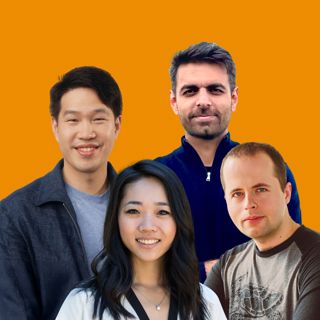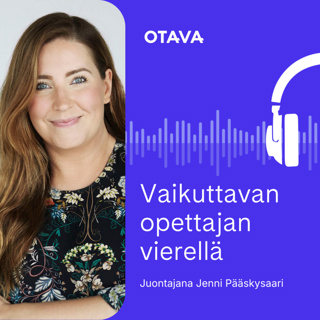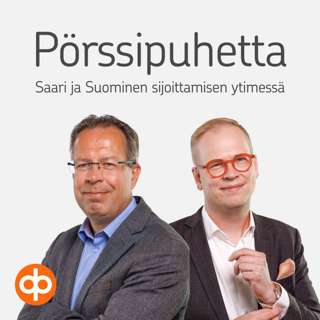
Preserving Digital History: How to Close the Web's 'Memory Hole'
More than 98% of the information on the web is lost within 20 years, and huge gaps exist in our digital and cultural history. Zoran Basich and Alex Pruden of a16z talk to Brewster Kahle and Sam Williams, who are using different approaches to attack this problem. Brewster cofounded the Internet Archive, which is well known for creating the Wayback Machine that crawls a billion URLs every day. Sam cofounded Arweave, a company that uses decentralized crypto networks to store information forever. For both of them, this issue has implications that go far beyond just data storage. It touches on issues of censorship, government manipulation of information, and how historical context is necessary for well-functioning societies. They discuss how decentralized models offer the promise of building a next-generation web that works better for users. Stay Updated: Find a16z on X Find a16z on LinkedIn Listen to the a16z Podcast on Spotify Listen to the a16z Podcast on Apple Podcasts Follow our host: https://twitter.com/eriktorenberg Please note that the content here is for informational purposes only; should NOT be taken as legal, business, tax, or investment advice or be used to evaluate any investment or security; and is not directed at any investors or potential investors in any a16z fund. a16z and its affiliates may maintain investments in the companies discussed. For more details please see a16z.com/disclosures. Hosted by Simplecast, an AdsWizz company. See https://pcm.adswizz.com for information about our collection and use of personal data for advertising.
13 Heinä 202047min
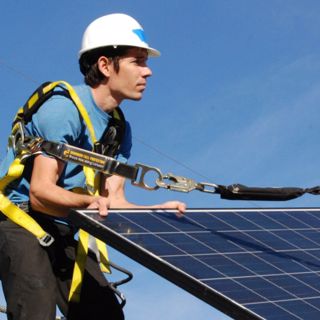
Alex Honnold on Human Performance (part 2) – Climbing and Entrepreneurship
In part 1 of our series on human performance, we looked at the limits of human potential in climbing and other sports – and how we push those limits through technology and training.In this episode, recorded at our a16z innovation summit last year, Alex talks with a16z general partner and fellow avid climber Peter Levine about the risk, fear, and preparation for his free solo of El Capitan on Yosemite. While climbing is the topic, the conversation holds many lessons for entrepreneurs, and anyone else who is attempting something that’s never been done before – from how to evaluate risk versus reward, moving into the public spotlight from stealth, removing constraints to innovate on established routes, and knowing where you can fall and where you can’t. The conversation finishes with Alex’s life philosophy of living simply and giving back, including how he donates a third of all his income to the Honnold Foundation to support solar projects in underserved communities. Stay Updated:Find a16z on XFind a16z on LinkedInListen to the a16z Podcast on SpotifyListen to the a16z Podcast on Apple PodcastsFollow our host: https://twitter.com/eriktorenberg Please note that the content here is for informational purposes only; should NOT be taken as legal, business, tax, or investment advice or be used to evaluate any investment or security; and is not directed at any investors or potential investors in any a16z fund. a16z and its affiliates may maintain investments in the companies discussed. For more details please see a16z.com/disclosures. Hosted by Simplecast, an AdsWizz company. See pcm.adswizz.com for information about our collection and use of personal data for advertising.
11 Heinä 202018min
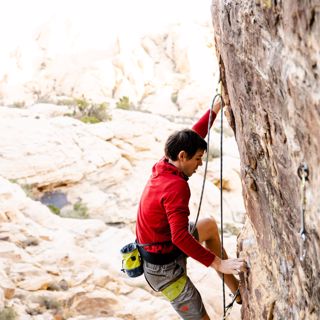
Alex Honnold on Human Performance (part 1) – Where's the Limit?
Is there a limit to what humans can do? And if so, how do you know when you've reached it? Welcome to part one of a two-part series on human performance with professional rock climber Alex Honnold. Alex redefined the limits of what is possible by free soloing – that is climbing with no ropes or safety gear – a 2000-foot granite rock face in Yosemite, known as El Capitan. That feat was documented in the award-winning film Free Solo. In this podcast, Alex, a16z general partner Peter Levine (who at age 59 is still an avid ice climber), and Das Rush discuss how technology and training have pushed the limits of what's possible and how to manage the mental preparation of any big endeavor, whether its building a company, reaching a new peak, or maintaining peak performance while aging.In Part 2, recorded last year as part of our a16z innovation summit, we share a fireside chat with Peter and Alex about the risk, preparation, and fear around Alex's free solo. Photo credit: Shawn Corrigan Stay Updated:Find a16z on XFind a16z on LinkedInListen to the a16z Podcast on SpotifyListen to the a16z Podcast on Apple PodcastsFollow our host: https://twitter.com/eriktorenberg Please note that the content here is for informational purposes only; should NOT be taken as legal, business, tax, or investment advice or be used to evaluate any investment or security; and is not directed at any investors or potential investors in any a16z fund. a16z and its affiliates may maintain investments in the companies discussed. For more details please see a16z.com/disclosures. Hosted by Simplecast, an AdsWizz company. See pcm.adswizz.com for information about our collection and use of personal data for advertising.
11 Heinä 202023min

Why We Shouldn’t Fear AI in Healthcare
"Why We Shouldn’t Fear the ‘Black Box’ of AI (in Healthcare and Everywhere)" by Vijay Pande. First published in the New York Times, January 2018. You can also find and share this article at a16z.com/aidoctor Stay Updated:Find a16z on XFind a16z on LinkedInListen to the a16z Podcast on SpotifyListen to the a16z Podcast on Apple PodcastsFollow our host: https://twitter.com/eriktorenberg Please note that the content here is for informational purposes only; should NOT be taken as legal, business, tax, or investment advice or be used to evaluate any investment or security; and is not directed at any investors or potential investors in any a16z fund. a16z and its affiliates may maintain investments in the companies discussed. For more details please see a16z.com/disclosures. Hosted by Simplecast, an AdsWizz company. See pcm.adswizz.com for information about our collection and use of personal data for advertising.
7 Heinä 20206min

When One App Rules Them All: The Case of WeChat and Mobile in China
"When One App Rules Them All: The Case of WeChat and Mobile in China" by Connie Chan. First published August 2015. You can also find and share this essay at a16z.com/mobilefirstchina Stay Updated:Find a16z on XFind a16z on LinkedInListen to the a16z Podcast on SpotifyListen to the a16z Podcast on Apple PodcastsFollow our host: https://twitter.com/eriktorenberg Please note that the content here is for informational purposes only; should NOT be taken as legal, business, tax, or investment advice or be used to evaluate any investment or security; and is not directed at any investors or potential investors in any a16z fund. a16z and its affiliates may maintain investments in the companies discussed. For more details please see a16z.com/disclosures. Hosted by Simplecast, an AdsWizz company. See pcm.adswizz.com for information about our collection and use of personal data for advertising.
7 Heinä 202020min

Every Company Is a Fintech Company
"Why Every Company Will Be a Fintech Company -- The Next Era of Financial Services and the 'AWS Phase' for Fintech" by Angela Strange.You can also find and share this essay at a16z.com/fintecheverywhere Stay Updated:Find a16z on XFind a16z on LinkedInListen to the a16z Podcast on SpotifyListen to the a16z Podcast on Apple PodcastsFollow our host: https://twitter.com/eriktorenberg Please note that the content here is for informational purposes only; should NOT be taken as legal, business, tax, or investment advice or be used to evaluate any investment or security; and is not directed at any investors or potential investors in any a16z fund. a16z and its affiliates may maintain investments in the companies discussed. For more details please see a16z.com/disclosures. Hosted by Simplecast, an AdsWizz company. See pcm.adswizz.com for information about our collection and use of personal data for advertising.
7 Heinä 202015min

Read-Alouds, Continued
Today we're continuing a series we started a while ago of read-alouds (for more context on the why and why now check out episode #500 on how we podcast!).The first was episode #544 in April, It's Time to Build, read out loud by Marc Andreessen; what follows are three more pieces read out loud by their authors:"Why Every Company Will Become a Fintech Company: The Next Era of Financial Services and the 'AWS Phase' for Fintech" by Angela Strange"When One App Rules Them All: The Case of WeChat and Mobile in China" by Connie Chan, first published August 2015"Why We Shouldn’t Fear the ‘Black Box’ of AI (in Healthcare and Everywhere)" by Vijay Pande, first published in the New York Times January 2018 Stay Updated:Find a16z on XFind a16z on LinkedInListen to the a16z Podcast on SpotifyListen to the a16z Podcast on Apple PodcastsFollow our host: https://twitter.com/eriktorenberg Please note that the content here is for informational purposes only; should NOT be taken as legal, business, tax, or investment advice or be used to evaluate any investment or security; and is not directed at any investors or potential investors in any a16z fund. a16z and its affiliates may maintain investments in the companies discussed. For more details please see a16z.com/disclosures. Hosted by Simplecast, an AdsWizz company. See pcm.adswizz.com for information about our collection and use of personal data for advertising.
7 Heinä 202051s

Journal Club: Revisiting Eroom's Law
Eroom’s Law is Moore’s Law spelled backwards. It’s a term that was coined in a Nature Reviews Drug Discovery article by researchers at Sanford Bernstein and describes the exponential decrease in biopharma research and development efficiency between the 1950s and 2010. Whereas Moore’s describes technologies becoming exponentially faster and cheaper over time, Eroom’s Law describes the trend of drug development becoming exponentially more expensive over time.The article describing Eroom’s Law was published in 2012, and analyzed data up till 2010. That is perhaps ironic as 2010 appears to be an inflection point in the trend. In Breaking Eroom’s Law, the authors analyze the data since 2010 and show that costs appear to have stabilized over the last ten years. But what has contributed to this critical and exciting trend shift? In our conversation, Jorge and Vijay discuss the three causes cited by the authors of the Breaking Eroom’s Law article, their views on what technologies and policies will continue to push costs down, and their opinion on whether Eroom’s Law is broken for good. Stay Updated:Find a16z on XFind a16z on LinkedInListen to the a16z Podcast on SpotifyListen to the a16z Podcast on Apple PodcastsFollow our host: https://twitter.com/eriktorenberg Please note that the content here is for informational purposes only; should NOT be taken as legal, business, tax, or investment advice or be used to evaluate any investment or security; and is not directed at any investors or potential investors in any a16z fund. a16z and its affiliates may maintain investments in the companies discussed. For more details please see a16z.com/disclosures. Hosted by Simplecast, an AdsWizz company. See pcm.adswizz.com for information about our collection and use of personal data for advertising.
5 Heinä 20209min
